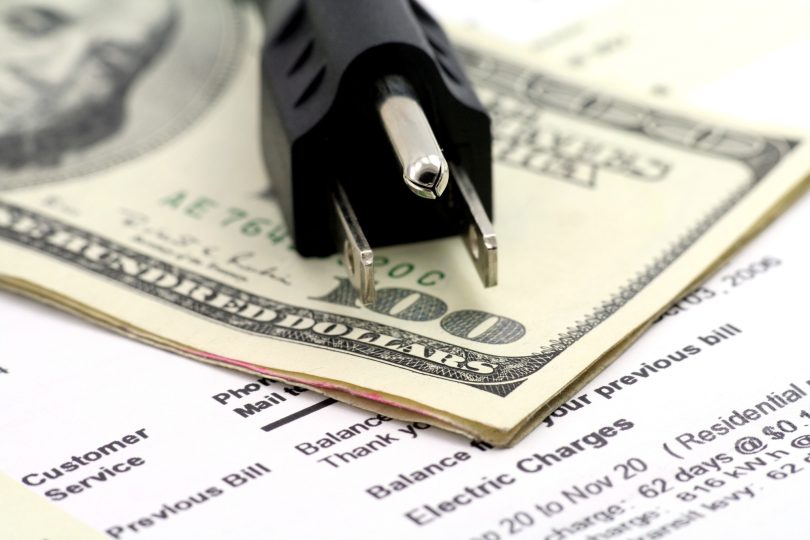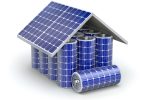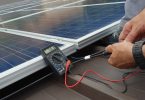According to a recent report, Americans installed enough solar panels in 2022 to power more than 20 million homes. In fact, out of all the capacity added to the U.S. electrical grid last year, nearly 40% was from solar.
Have you been thinking about making the switch yourself?
A solar-powered home can offer many operational and financial benefits. While you’ll pay up-front to invest in the system, most homeowners find that the panels quickly pay for themselves by offering significant energy savings.
Today, we’re sharing how to reduce energy bill costs with solar, and how we can help you get started.
Use Solar Panels for Electricity
Let’s start with the most obvious way you can save money with a solar installation: by using the panels to produce electricity!
Throughout the day, the panels absorb energy from the sun. You don’t have to pay a penny for this energy — it’s all there, all of the time, and completely free.
Once they absorb the sun’s energy, the panels can transmit it to your home. After an installer sets up your system, this process can take place seamlessly without any extra work required from you.
In turn, the systems and devices in your house use that power instead of the power that your utility company provides (and charges you for).
It’s simple math: When the utility meter isn’t running, you shouldn’t be charged. You’ll notice the difference in your energy bills shortly after the installation is complete.
Share Excess Energy for Credit
Depending on the weather and climate where you live, your solar panels might get a ton of sunlight throughout the day. When this happens, they could wind up making too much solar energy!
Thankfully, it doesn’t have to go to waste. You can use this opportunity to save even more on your utility bills by leveraging a program called solar net metering.
Available in most states, this is a special type of utility billing strategy designed for homeowners who utilize solar power. If you enter into this program, the utility company will only bill you for the “net” energy that your home uses each month.
Net energy is the difference between the amount of energy that your house consumes during the monthly billing period and the amount of energy that your solar system actually provides.
If you’re regularly making more energy than you need thanks to a super-sunny climate or extra-efficient panels, then participating in net metering can help you save money each month. Here’s how it works.
Solar Net Metering at a Glance
First, any excess electricity that your home solar system generates will be sent to your utility providers. In turn, they will save it to the local transformer grid.
When this happens, you could actually see your meter run backward. Typically, this means that you will get a credit on your utility account. You can use that credit to help pay for the electricity that you need to use from the traditional grid down the road.
For instance, if your panels have a few slow days due to adverse weather, you may not be able to rely on them to power all the lights and devices in your home. Likewise, they can’t charge at night, so you might need an extra power boost when the sun goes down.
Even if you don’t get a credit to use toward future energy use, you should notice your monthly utility bill decrease after you initiate a solar net metering partnership with your utility provider.
Use a Home Energy Battery
What should you do if you produce excess energy each month but you don’t want to send it back to the utility company?
In that case, you can use a compact household device called a home energy battery. Integrating seamlessly with most solar panel systems, these batteries provide storage space for you to contain the extra energy that your solar panels produce.
This way, you can retain the right to use that power any time you see fit. It can also be extremely resourceful in the event of a power outage or another type of emergency.
While this approach means you won’t get to turn back the meter, it’s still a major perk. Plus, the more energy you amass inside your home energy battery, the less reliant you’ll become on the grid altogether.
Eventually, you may decide to live off of the grid completely, which will definitely help you save on energy costs. While this could be a viable option for some homeowners, most will reserve their batteries as backups and use them as intended.
Practice Smart Energy Savers
When your solar panels are working at their highest capacity, you naturally reap the most energy savings. Here are a few ways to get the most out of your system:
- Clean your solar panels regularly
- Perform your most energy-centric tasks during daylight hours (e.g. doing laundry, washing dishes)
- Install timers to turn off certain lights and appliances when you aren’t home during the day
- Reduce energy waste by turning off lights when you leave the room, caulking around drafty doors and windows, and taking shorter showers
When it comes to cleaning your solar panels, there are ready-made cleaning kits that take the guesswork out of the process. You can also install automated cleaning solutions that mount close to the panels and turn on automatically periodically, similar to a sprinkler system.
Go Solar and Learn How to Reduce Energy Bill Costs
Solar panels are of the most effective ways to save money on your household utilities without sacrificing the comforts of home. Not only can you cut your monthly costs, but you could even earn money through net metering.
As you continue learning more about how to reduce energy bill costs with solar, we’re here to help. Feel free to explore our guides, insights, and case studies to learn more about how this technology works and what makes it so valuable.
Wondering what a solar system might cost for your house? Contact us today for a free consultation!






